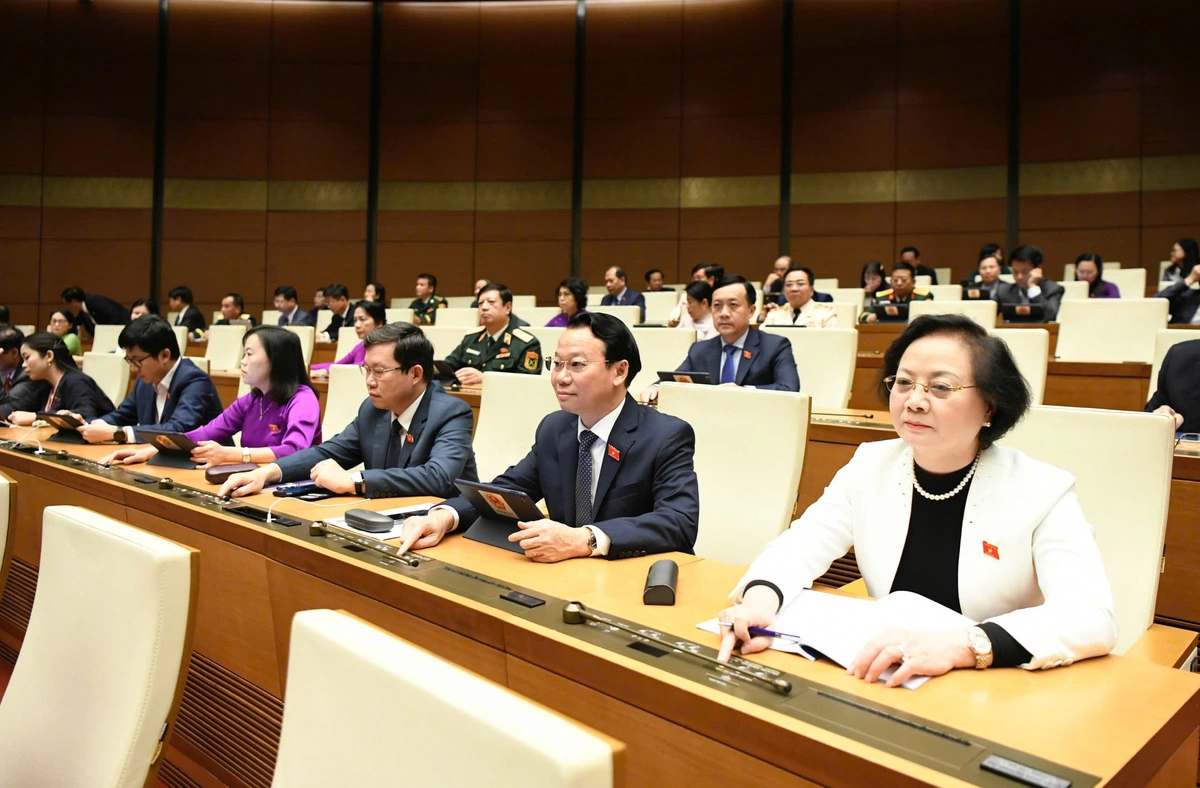Vietnam’s legislative National Assembly (NA) has agreed to resume a nuclear power project after an eight-year hiatus, in a bid to ensure national energy security and support the country’s goal of reaching net-zero emissions by 2050.
In a resolution passed unanimously at a Saturday meeting, the legislature approved restarting the project at the government’s request.
The NA also directed the government to allocate resources for resuming operations in Ninh Thuan Province, located in south-central Vietnam, based on assessments from relevant agencies.
The resolution also requires relevant ministries and agencies to amend related laws, including the Law on Atomic Energy, to facilitate the revival of the project, which was suspended in 2016.
On November 27, Permanent Deputy Prime Minister Nguyen Hoa Binh, authorized by PM Pham Minh Chinh, presented a proposal to the NA, emphasizing that nuclear power is crucial in improving national energy security as the country's electricity demand is forecast to soar from the current 80 GM to some 150 GW in 2030 and to 480-580 GW by 2050, according to Voice of Vietnam.
The proposal also highlighted the need to develop nuclear power to gradually replace emission-producing power sources, helping fulfill Vietnam’s international commitment to achieve net-zero emissions by 2050.
“Developing nuclear power in Vietnam brings along many benefits as it helps diversify power supply sources while ensuring energy security,” VOV quoted Binh as saying.
“It performs the dual task of generating electricity and protecting the environment.”
Underlining the world’s trend to increasingly use nuclear power, Binh said 32 countries currently own and operate nuclear power plants while about 20 others are mulling over nuclear power development to meet their energy needs and realize their climate commitments.
As of late August, 415 nuclear power reactors were operating globally with a total installed capacity of about 373,730 MW and 62 reactors capable of around 64,970 MW were under construction, Binh added.
Nuclear power plants currently account for about 10 percent of the total electricity produced worldwide and play an important role in the power grids of many countries, according to the Vietnamese government.
In 2009, the government assigned state utility Vietnam Electricity (EVN) to be the investor of the Ninh Thuan nuclear power project, pursuant to an NA resolution.
EVN later cooperated with Russia and Japan on building the Ninh Thuan 1 and Ninh Thuan 2 plants, respectively, VOV reported.
At that time, the two plants were designed to have a total capacity of over 4,000 MW and needed an estimated investment of about VND200 trillion (US$7.9 billion).
However, the project was suspended in November 2016 over many concerns about safety, high investment costs, technological issues, and developments in the global energy situation then, according to Pham Van Hoa, a member of the NA’s Law Committee.
The government stated that the sites for both plants, thoroughly surveyed and assessed by domestic and international consultants, remain the most suitable locations for continuing the construction of power plants under the resumed project.
Like us on Facebook or follow us on X to get the latest news about Vietnam!





















































